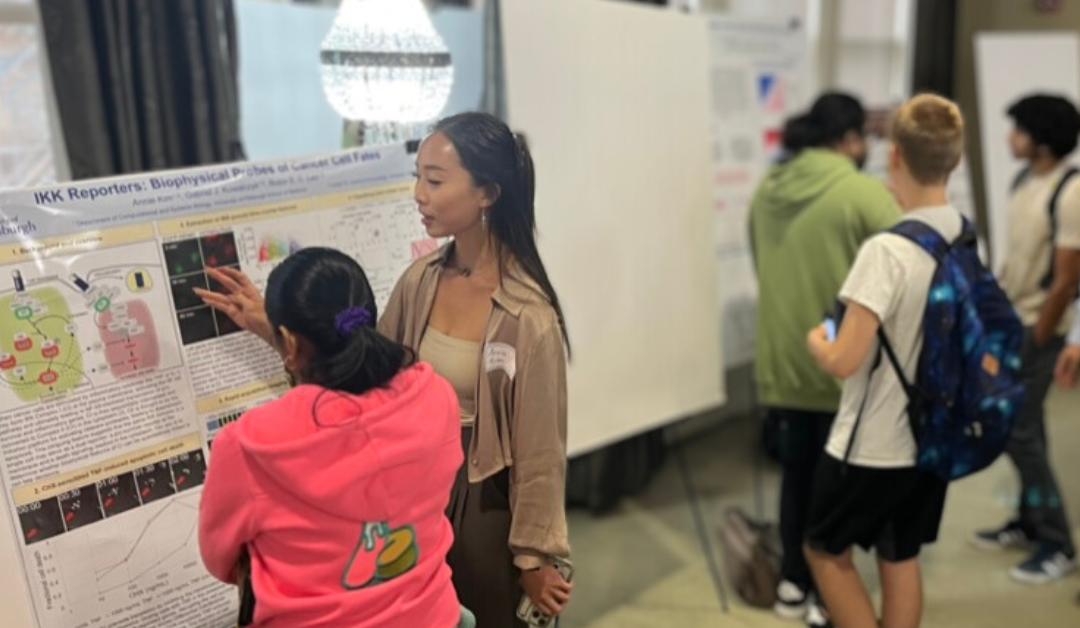Are you still trying to finalize your spring term class schedule? Consider signing up for Bioimaging, Analysis and Spatial Biology (MSCBIO 2027).

Menu

Are you still trying to finalize your spring term class schedule? Consider signing up for Bioimaging, Analysis and Spatial Biology (MSCBIO 2027).

What if there were a way to improve clinical testing for changes in our genome (variants) that cause increased risk of breast cancer? A research team led by Frederick (“Fritz”) Roth answers this question in an article in the American Journal of Human Genetics.

CSB staff volunteered at the Pittsburgh-based organization Cribs for Kids on November 22, where they assembled kits to prevent infant sleep-related deaths.

PhD candidate Emma Flynn recently took to the stage at the Machine Learning in Drug Discovery Symposium in Cambridge, Massachusetts, where she delivered a lightning talk.

Yuhao Chen, a visiting PhD candidate from Zheijiang University in China, spent six months honing his computational biology research at Pitt.

Pitt Biological Physics Day fostered collaboration between the Department of Computational and Systems Biology (CSB) and the Department of Physics and Astronomy.

The Department of Computational and Systems Biology is accepting applications for full-time, tenure stream Assistant and Associate Professor positions.

Associate Professor David Koes and PhD candidate Ian Dunn identified promising early-stage molecules that could lead to new treatments for coronaviruses in the second CACHE Challenge.

Virginia Burger has found her career niche at the intersection of science and business development.

Neha Cheemalavagu has graduated from the Joint Carnegie Mellon-University of Pittsburgh PhD Program in Computational Biology!